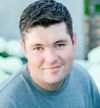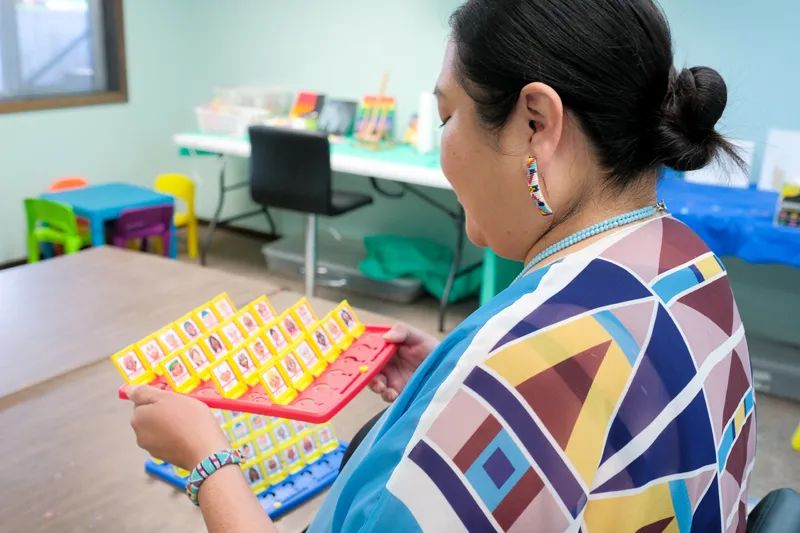
Trauma Past. Trauma Present.
Women help others navigate their way to a mentally healthy future
Savannah Sinquah was working as public health cancer prevention specialist when she and her co-workers took the ACES test (Adverse Childhood Experience Study) as part of a workplace seminar on trauma. She was surprised by her high score. She hadn't realized she'd been exposed to so much trauma in her life.
Seeing her score was an “aha” moment for Savannah. “This is it,” she remembers thinking. “This is what I want to do.”
TRAUMA PAST, TRAUMA PRESENT
Savannah grew up in Pryor. An enrolled member of the Crow Tribe, she's also a citizen of the Hopi, Tewa, Mandan and Hidatsa nations. Savannah lived with her mother, a teacher in the Pryor Public Schools. Her father was in the armed services. Her parents divorced when she was young.
At the University of Montana, Savannah earned a B.S. in business administration. She was just a few credits short of a Native American Studies minor. When introduced to the concept of historic trauma, she began to learn how boarding school experiences played out in the lives of generations of indigenous people.
Last year, the U.S. Department of the Interior released a report that identified more than 400 Indian boarding schools that operated from the late 18th century through the late 1960s. The report concluded that hundreds of thousands of Indian children were removed, often forcibly, from their families and tribes to attend these government-backed boarding schools. While the outward mission was education and religious training, many believe the unspoken goal was the annihilation of indigenous cultures.
Over the years, many elders have testified before state and federal lawmakers, sharing their stories of being stripped of their clothing, personal effects and cultural identities. Their braids and long hair were forbidden, as was speaking native languages. There are scores of accounts of physical and sexual abuse. Only 25 percent of those removed came home. Deceased children were buried in marked and unmarked graves. To this day, families wonder what happened to children who never came back. Recent discoveries of unmarked graves on boarding school grounds have sent renewed shock waves of grief and horror through Indian Country.
Savannah has learned that trauma occurs when we feel intense fear or helplessness. Any event that leaves us emotionally disturbed or physically injured can cause trauma. She says when it comes to those impacted by Indian boarding schools, there was no way for them to acknowledge the trauma, let alone obtain treatment. That is what drew her to trauma-based health care.
These days, trauma-based health care providers ask, “What happened to you?” rather than “What's wrong with you?” Providers are trained to recognize that presenting symptoms may be a residual, lingering response from past events. Fear is a major component of trauma, and there's always a risk that medical intervention might re-traumatize a patient.
“How could we expect that our ancestors, themselves mere children with these boarding school experiences, to become loving, emotionally regulated adults?” Savannah asks. “How could we expect them to know how to make sense of the world, let alone raise emotionally healthy children?”
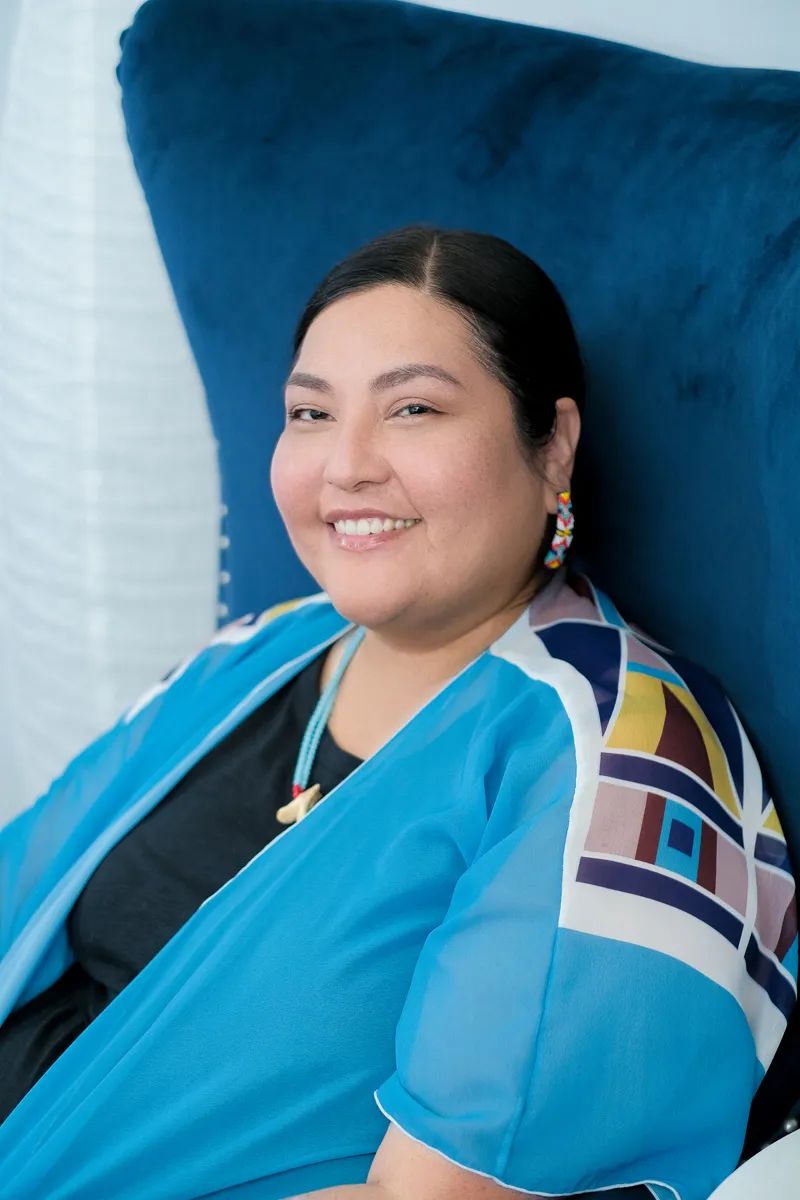
TRAUMA LEAVES AN IMPRINT
Before seeing her high ACES score, Savannah vowed she'd never go back to school for a master's degree.
“I guess I ate my words,” she says with a ready laugh. She enrolled in the Masters of Social Work program at Walla Walla University's Billings campus. Her goal was to become a licensed clinical social worker and work with trauma survivors.
Savannah's understanding of trauma is guided by Dr. Bessel van der Kolk, a Boston-based psychiatrist, leading trauma expert and author of the bestselling book, “The Body Keeps Score.” He explains, “Trauma is not just an event that took place in the past. It is also the imprint left by that experience on mind, brain and body. … It changes not only how we think but what we think about and our very capacity to think.”
Dr. van der Kolk teaches that severe, untreated trauma and unresolved grief alter genetics and affect the mental and physical health of successive generations. Studies published by the National Institute of Health support this premise. To compound the problem, untreated emotional trauma has a tendency to lead to addiction, alcoholism, verbal and physical abuse and a host of other physical and psycho-social difficulties.
“My job, whether my client is indigenous or not, male or female, young or old, is to help the person move away from a constant state of fear,” says Savannah. “I help them connect with their feelings and learn how to regulate them.”
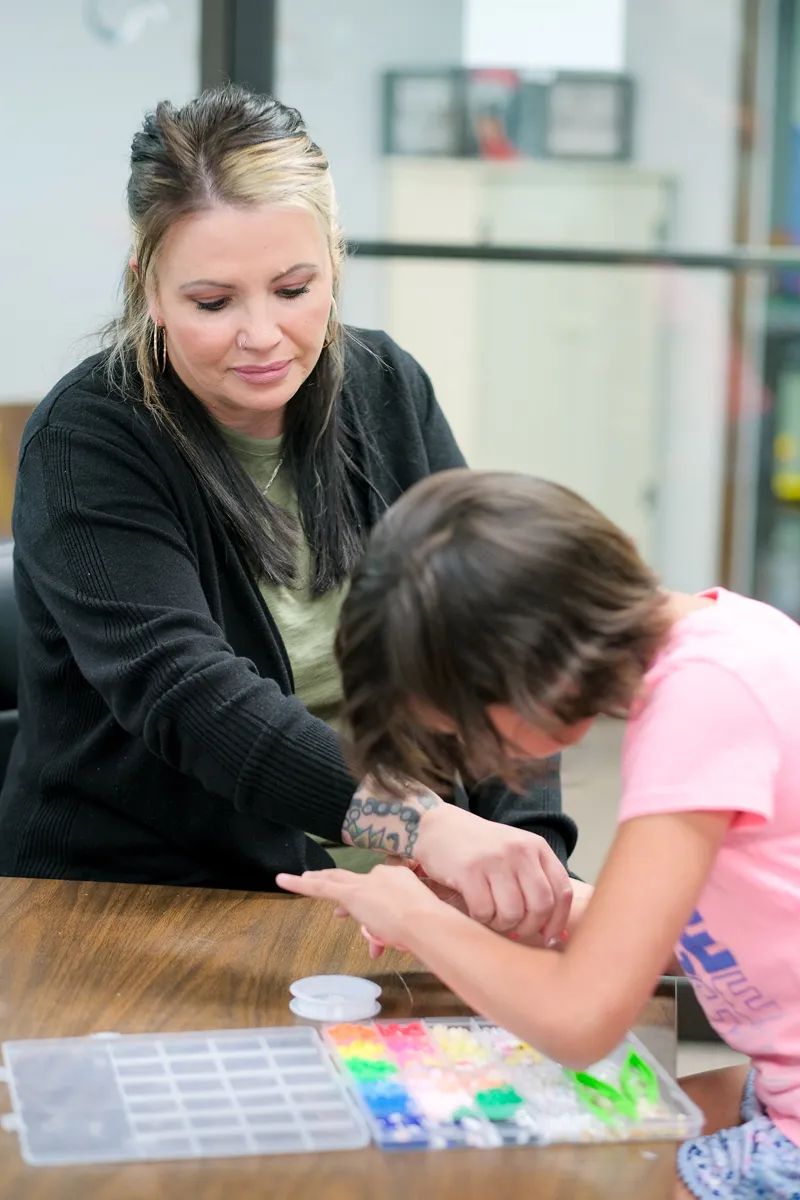
CONNECTIONS AT MANY LEVELS
At Walla Walla University-Billings, Savannah was mentored by Julie Wulfkuhle. Julie has master's degrees in social work and health care management and extensive private practice experience as a licensed clinical social worker (LCSW). She's also a domestic abuse advocate in the Tualip Tribal Courts. Seeing increased trauma among indigenous women and children and domestic abuse survivors, Julie sought to increase the availability of trauma-informed care among mental health practitioners in Billings.
Julie offered Savannah a therapist's position at Elysian Mental Health Foundation (EMHF). “Elysian,” derived from the Greek language, means “delight” or “blissful.” Julie's fervent hope is that the clients her foundation counsels reach a blissful state of being. Trauma-informed therapy is just one of EMHF’s strengths. Therapists also rely on techniques such as tapping, EMDR (eye movement desensitization and reprocessing) and play therapy. The office has a dedicated art therapy room supplied with paper and other surfaces and a variety of paints, pens and crayons. Its walls are covered with artistic expressions in all sizes, shapes and colors.
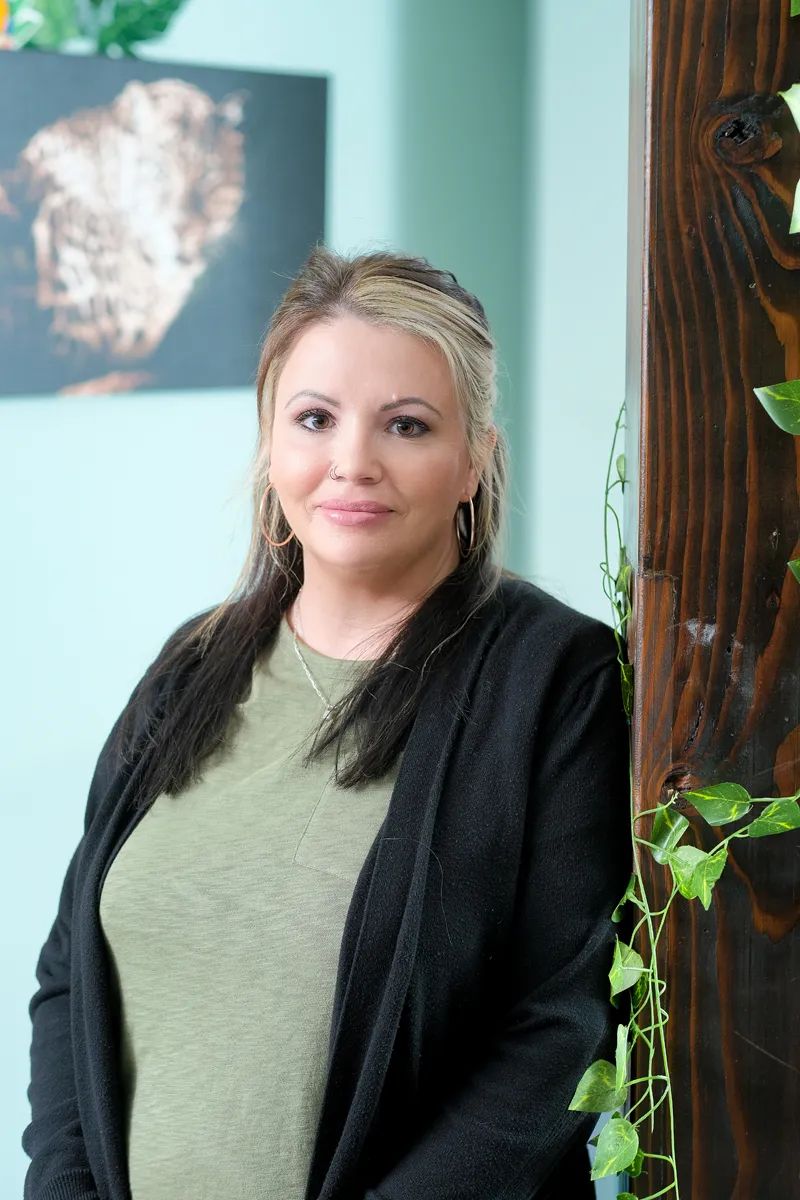
TOWARD A HEALTHIER FUTURE
The EMHF therapy team includes Julie, Savannah, Athena Martell and others. Athena, a member of the Fort Peck Tribe, learned about trauma while working with troubled teens at a previous job. Then an addiction counselor, she and former co-workers would ask why a child was acting out. To Athena, the holistic approach made sense. Like Savannah, Athena subsequently obtained a master's degree in mental health counseling from Grand Canyon University-Phoenix so she could address trauma in a therapeutic setting.
“My job now,” says Athena, “is to identify the 'big event' that impacts the life of a child or an adult and how he/she sees the world.”
Athena finds that children and adults respond differently to trauma therapy. Children seek a safe environment. Once the fear factor is removed, they're more malleable and ready to change. Teens respond well to art therapy. Adults are more guarded, reticent to delve into past events and unwilling to let go of maladaptive behaviors.
Athena and Savannah stay in close contact with each other. They talk out issues and provide support when stories they're privy to are particularly harrowing. Smudging and meditation are among their tools to stay healthy.
Julie and her EMHF team envision opening a second Billings office as current demand for their services exceeds their capacity. According to Julie, trauma-informed mental health counselors are hard to find. They're exploring the idea of a mobile unit that could travel to rural and reservation communities in eastern Montana.
Savannah and Athena, supported by Julie, face the trauma of their pasts as American Indian women and the pasts of their clients every workday. Within this space, where there are no easy answers, and together with those they serve, they bravely navigate a pathway to a healthier future.



